10 Best Herbal Tinctures For Jaundice

Herbal tinctures have been traditionally used to support liver function and aid in the treatment of jaundice, a condition characterized by yellowing of the skin and eyes due to elevated bilirubin levels.
Commonly used herbs in these tinctures include milk thistle, dandelion, and boldo, which are believed to promote bile production and detoxification. These tinctures are often prepared by soaking herbs in alcohol or vinegar to extract their active compounds, making them easier to absorb. While some studies suggest potential benefits, it is important to consult a healthcare professional before using herbal tinctures, as they may interact with medications or have side effects.
Overall, herbal tinctures can be a complementary approach to conventional treatments for jaundice, but should not replace medical advice or therapy.
Table of Contents
- 1. Thistle (Silybum marianum)
- 2. Turmeric (Curcuma longa)
- 3. Black cumin (Nigella sativa)
- 4. Ginger (Zingiber officinale)
- 5. False leaf (Phyllanthus amarus)
- 6. Sweet wormwood (Artemisia annua)
- 7. Peppermint (Mentha piperita)
- 8. Stinging nettle (Urtica dioica)
- 9. Indian barberry (Berberis aristata)
- 10. Kalmegh (Andrographis paniculata)
1. Thistle (Silybum marianum)

Silybum marianum, commonly known as milk thistle, has been traditionally used for its hepatoprotective properties, and its herbal tinctures are often explored for their potential benefits in treating jaundice.
The active compound, silymarin, is believed to support liver function by protecting liver cells from damage and promoting regeneration. While some studies suggest that milk thistle may help reduce liver inflammation and improve bile flow, its effectiveness in treating jaundice specifically remains inconclusive. Due to limited clinical evidence, it is generally recommended to use silybum marianum tinctures under the guidance of a healthcare professional, especially when combined with conventional treatments.
As with any herbal supplement, it is important to consider potential interactions and ensure proper dosage to avoid adverse effects.
2. Turmeric (Curcuma longa)

Curcuma longa, commonly known as turmeric, has been traditionally used in herbal medicine for its potential benefits in treating jaundice, a condition characterized by yellowing of the skin and eyes due to elevated bilirubin levels.
Curcuma longa herbal tinctures are prepared by extracting the active compounds, primarily curcumin, from the rhizomes of the plant using alcohol as a solvent. These tinctures are believed to support liver function and enhance bile production, which can aid in the body's natural detoxification processes. However, while some studies suggest curcumin may have hepatoprotective properties, more clinical research is needed to confirm its efficacy in treating jaundice.
As with any herbal remedy, it is advisable to consult a healthcare professional before using curcuma longa tinctures, especially for individuals with existing liver conditions or those taking medications.
3. Black cumin (Nigella sativa)
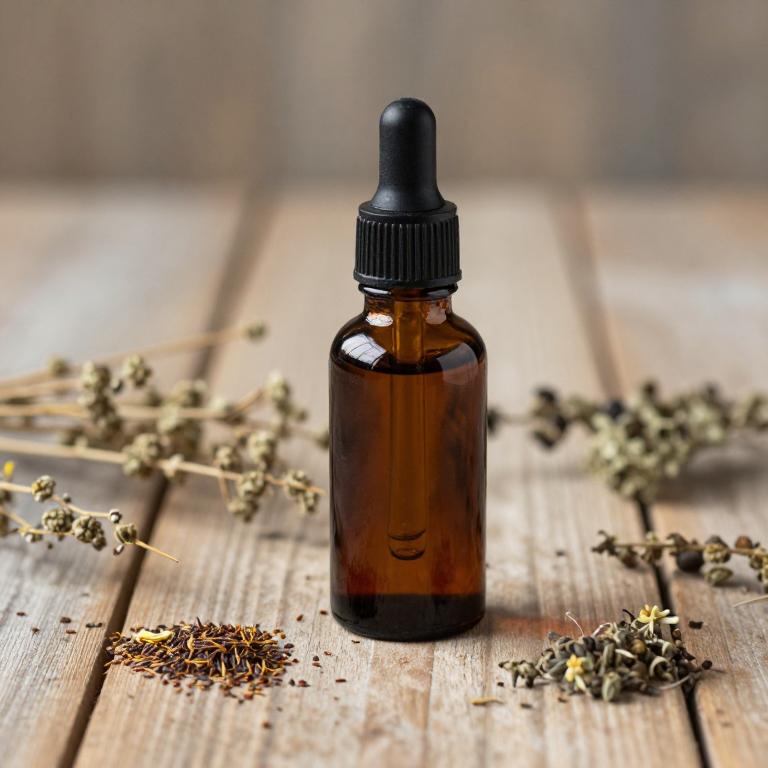
Nigella sativa, commonly known as black cumin, has been traditionally used in herbal medicine for its potential therapeutic properties, including its anti-inflammatory and antioxidant effects.
Herbal tinctures made from Nigella sativa seeds are often considered for their possible role in supporting liver function, which is crucial in the management of jaundice. Jaundice, characterized by yellowing of the skin and eyes due to elevated bilirubin levels, may benefit from the hepatoprotective properties attributed to nigella sativa. While some preliminary studies suggest that nigella sativa may aid in liver detoxification, more clinical research is needed to confirm its efficacy and safety in treating jaundice.
As with any herbal remedy, it is important to consult a healthcare professional before using nigella sativa tinctures, especially for individuals with pre-existing medical conditions or those undergoing treatment.
4. Ginger (Zingiber officinale)

Zingiber officinale, commonly known as ginger, has been traditionally used in herbal medicine for its potent anti-inflammatory and antioxidant properties.
Ginger tinctures, derived from the rhizome of the plant, are often utilized in the treatment of jaundice due to their ability to support liver function and promote the detoxification process. The active compounds in ginger, such as gingerol and zingerone, may help in reducing bilirubin levels and improving bile flow, which are key factors in managing jaundice. While some preliminary studies suggest potential benefits, it is important to consult a healthcare professional before using ginger tinctures as a treatment for jaundice, as they should complement rather than replace conventional medical care.
Overall, ginger tinctures may serve as a complementary therapy in the management of jaundice, though further research is needed to confirm their efficacy and safety.
5. False leaf (Phyllanthus amarus)
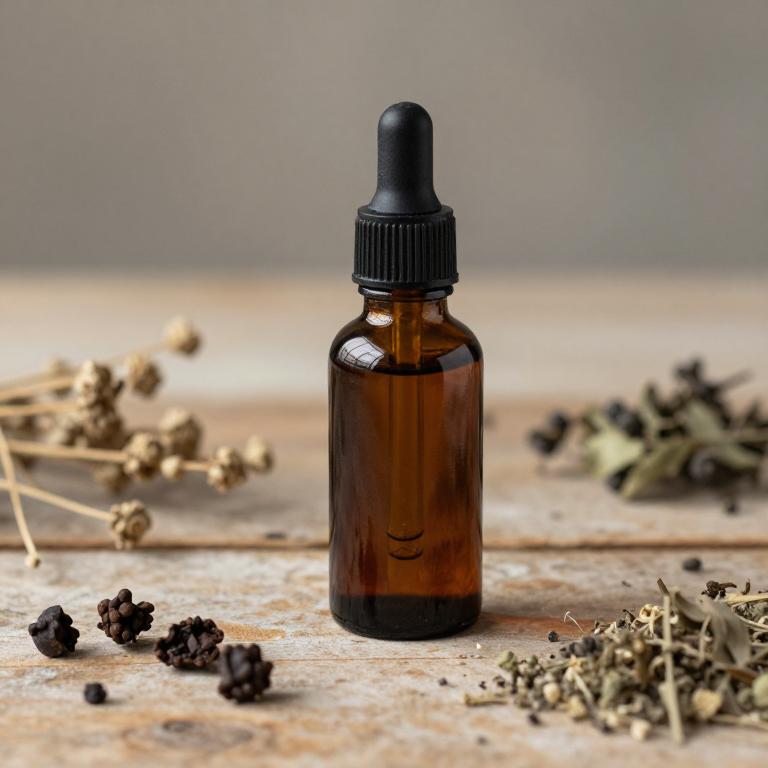
Phyllanthus amarus, commonly known as the stonebreaker or ecballium, is a traditional medicinal plant widely used in herbal tinctures for the treatment of jaundice.
The tinctures are prepared by soaking the dried leaves and fruits of the plant in alcohol, which extracts its active compounds such as flavonoids and alkaloids. These compounds are believed to support liver function and promote the detoxification process, aiding in the reduction of bilirubin levels in the blood. In Ayurvedic and traditional African medicine, Phyllanthus amarus has been historically valued for its hepatoprotective properties.
Modern studies suggest that its use may complement conventional treatments for jaundice, though it is important to consult a healthcare professional before use.
6. Sweet wormwood (Artemisia annua)
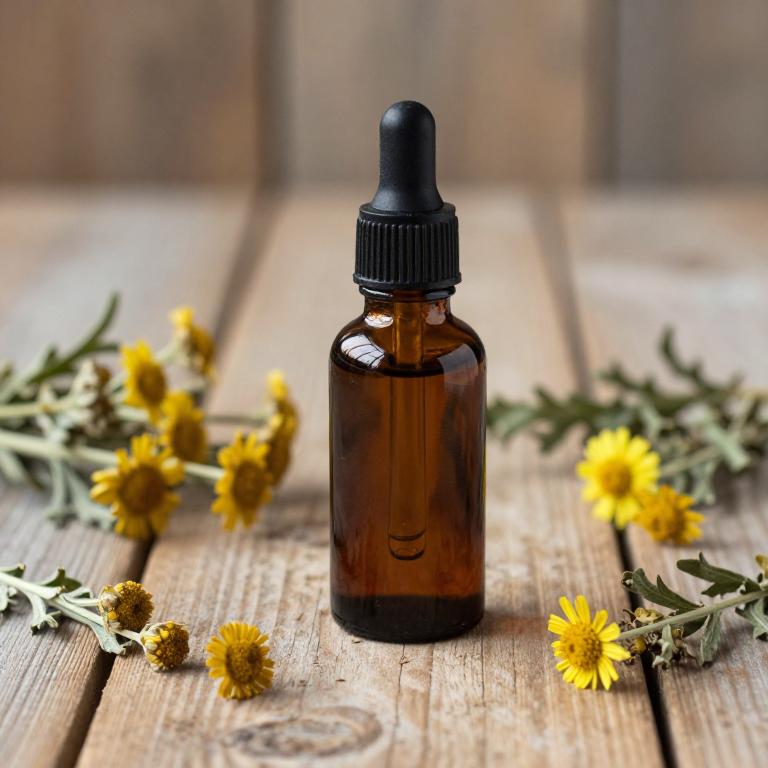
Artemisia annua, a herb native to China, has been traditionally used for its medicinal properties, particularly in the treatment of malaria, and more recently, it has gained attention for its potential role in managing jaundice.
The herb contains a compound called artemisinin, which is known for its antiparasitic and anti-inflammatory effects, and it is often used in herbal tinctures to support liver function and promote the detoxification process. Herbal tinctures made from artemisia annua are typically prepared by soaking the dried plant material in alcohol, allowing the active compounds to be extracted for easier absorption by the body. These tinctures are believed to help reduce bilirubin levels, which are elevated in jaundice, by supporting the liver's ability to process and excrete bile.
While some studies suggest that artemisia annua may offer benefits for liver health, it is important to consult a healthcare professional before using it, as it may interact with other medications or have side effects in certain individuals.
7. Peppermint (Mentha piperita)

Mentha piperita, commonly known as peppermint, has been traditionally used in herbal medicine for its various therapeutic properties, including its potential role in treating jaundice.
Peppermint tinctures are believed to support liver function by promoting bile production and improving the flow of bile through the gallbladder and liver ducts. This enhanced bile flow may help in the elimination of bilirubin, a pigment that accumulates in the blood during jaundice. While some anecdotal evidence and traditional practices suggest its efficacy, scientific research on peppermint tinctures specifically for jaundice is limited.
As with any herbal remedy, it is advisable to consult a healthcare professional before using peppermint tinctures, especially for conditions like jaundice that may require more comprehensive medical evaluation and treatment.
8. Stinging nettle (Urtica dioica)

Urtica dioica, commonly known as stinging nettle, has been traditionally used in herbal medicine for its potential detoxifying properties.
Tinctures made from Urtica dioica are often prepared by soaking the fresh or dried leaves in alcohol to extract its active compounds. These tinctures are believed to support liver function and may aid in the treatment of jaundice by promoting the elimination of bilirubin from the body. However, while some anecdotal evidence supports its use, scientific research on its efficacy for jaundice is limited.
It is important to consult a healthcare professional before using Urtica dioica tinctures, especially for individuals with existing liver conditions or those on medication.
9. Indian barberry (Berberis aristata)
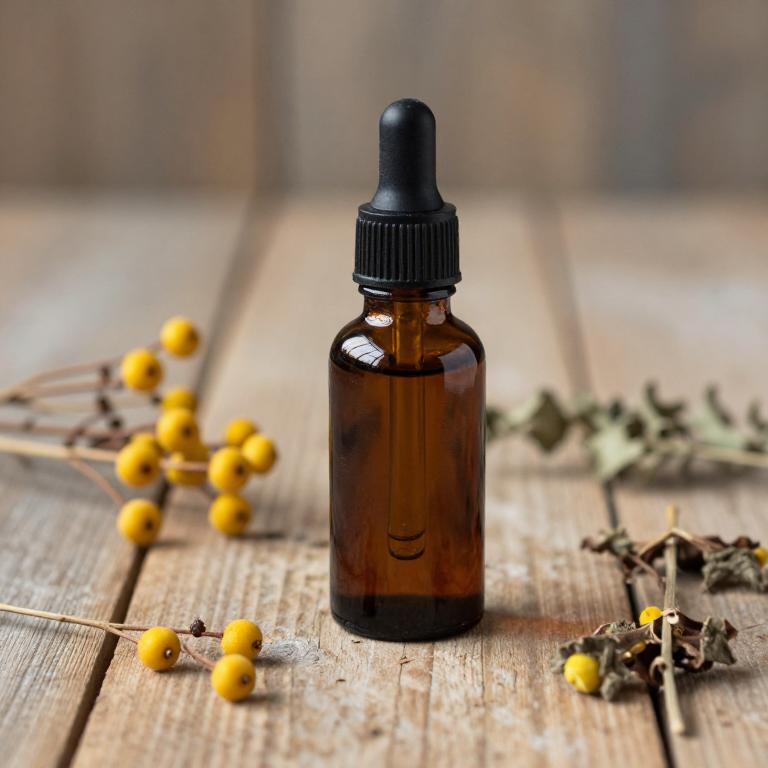
Berberis aristata, also known as the Indian barberry, is a traditional medicinal plant widely used in Ayurvedic and other herbal systems for its potent healing properties.
Its herbal tinctures are particularly valued for their ability to support liver function, which is crucial in the treatment of jaundice, a condition characterized by yellowing of the skin and eyes due to elevated bilirubin levels. The active compound, berberine, is believed to enhance bile production and improve the liver's capacity to process and excrete bilirubin. When used as a tincture, Berberis aristata is often combined with other herbs to create a synergistic effect that supports detoxification and liver health.
However, it is important to consult a qualified healthcare provider before using these tinctures, especially for individuals with pre-existing medical conditions or those taking other medications.
10. Kalmegh (Andrographis paniculata)
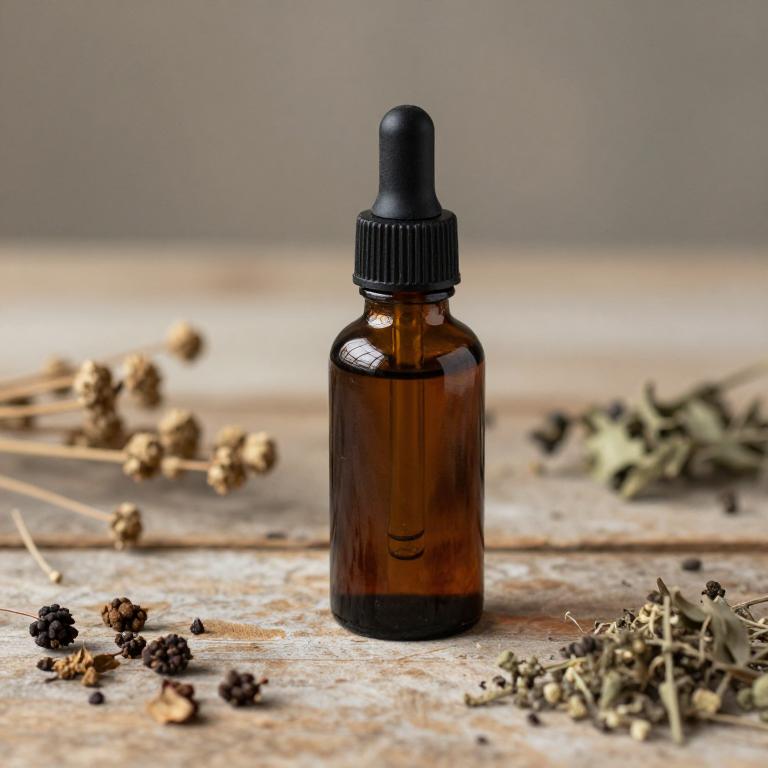
Andrographis paniculata, commonly known as "king of bitters," is a traditional herbal remedy that has been used in Ayurvedic medicine for its potent therapeutic properties.
Herbal tinctures made from Andrographis paniculata are believed to support liver function and aid in the treatment of jaundice by promoting the detoxification process and improving bile flow. The active compounds in the plant, such as andrographolides, exhibit anti-inflammatory, antioxidant, and hepatoprotective effects, which may help reduce bilirubin levels in the blood. These tinctures are often used in combination with other herbs to enhance their efficacy in managing jaundice symptoms.
However, it is important to consult a healthcare professional before using Andrographis paniculata tinctures, especially for individuals with pre-existing liver conditions or those undergoing medical treatment.